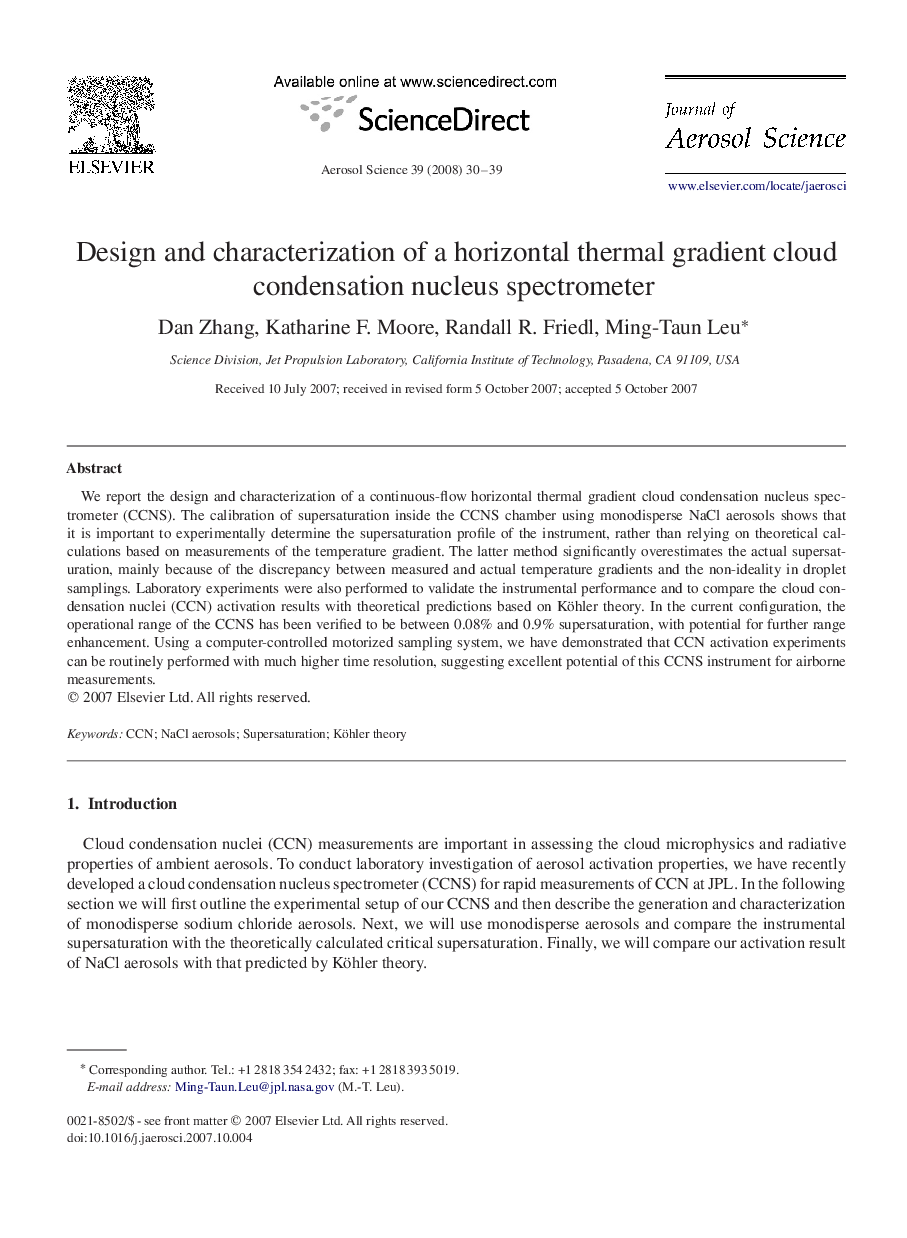| Article ID | Journal | Published Year | Pages | File Type |
|---|---|---|---|---|
| 4453146 | Journal of Aerosol Science | 2008 | 10 Pages |
We report the design and characterization of a continuous-flow horizontal thermal gradient cloud condensation nucleus spectrometer (CCNS). The calibration of supersaturation inside the CCNS chamber using monodisperse NaCl aerosols shows that it is important to experimentally determine the supersaturation profile of the instrument, rather than relying on theoretical calculations based on measurements of the temperature gradient. The latter method significantly overestimates the actual supersaturation, mainly because of the discrepancy between measured and actual temperature gradients and the non-ideality in droplet samplings. Laboratory experiments were also performed to validate the instrumental performance and to compare the cloud condensation nuclei (CCN) activation results with theoretical predictions based on Köhler theory. In the current configuration, the operational range of the CCNS has been verified to be between 0.08% and 0.9% supersaturation, with potential for further range enhancement. Using a computer-controlled motorized sampling system, we have demonstrated that CCN activation experiments can be routinely performed with much higher time resolution, suggesting excellent potential of this CCNS instrument for airborne measurements.
